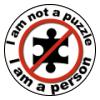Are all preemies worth saving?
NFB documentary asks whether doctors should keep extremely premature babies alive A National Film Board documentary has stirred controversy among doctors by questioning the large amounts of money spent on saving extremely premature babies who are often left with lifelong handicaps.
"It contains many exaggerations that paint a false and unfair picture of what we do," says Dr. Bruno Piedboeuf, interim director of pediatrics at Quebec City's main university hospital.
Written and directed by Montreal filmmaker Lina Moreco, Medicine Under the Influence offers a 76-minute glimpse into the lives of several Montreal children with severe mental and physical disabilities. "Many of those children would not have survived 30 or even 20 years ago. Now they do, with often terrible consequences," she says.
Adding to the problem is the lack of resources for these children once they leave the hospital. "It doesn't make sense that we, as a society, spend $250,000 to save a baby born after only 22 weeks, but spend next to nothing to provide the treatment and therapies they need to live with their handicaps. It's scandalous."
Dr. Pierre Marois, a Montreal child rehab specialist who appears in the film, blames the situation on pressure from pharmaceutical companies and the mindset of medical professionals bent on saving lives at any cost. "We need to change the mentality in our hospitals."
But several Quebec pediatricians have publicly expressed shock and anger over Moreco's portrayal of the situation.
"I felt sick when I saw it," Piedboeuf says. "Not just for doctors, but for the nurses and other personnel that work with these children."
He says the film portrays neonatal specialists as mad scientists, their tiny patients as guinea pigs in horrendous experiments. "It's an aberration to suggest such things," he says. "We're aware of the suffering, we share the human drama."
While agreeing with criticisms over the lack of resources for handicapped children, Piedboeuf says the film focuses on worst-case scenarios and fails to distinguish children born prematurely from those born with handicaps at term.
The head of Quebec's pediatric association agrees. "It's a reality that many infants who are born prematurely end up handicapped," says Dr. Thérèse Côté-Boileau. "That's the sad and bitter side, but it's only one side. Where are the positive outcomes? Where are the exciting breakthroughs that have raised the standards of care in this field over the past 30 years?
"Is the filmmaker suggesting we let every baby at 24 or 25 weeks die because 30 per cent are left with (complications)?" she adds. "Many full-term children are born with complications and disabilities. Do we let them die, too?"
With files from The Medical Post.
templatedata\content\article\data\2005\04\20050426_100602_4976
-->
The Link to this article was posted on the premature baby forum I belong too. I would love to see this programme when it is broadcast, but I doubt I ever will.
I have my own views on this whole subject, and my main issue all the way down the line has been the lack of information available to parents, if you've read Michael's website, you'll know what a difficult time we have had getting info out of Dr's, and my feelings around that.
The lack of support that follows a prem baby going home, the wait and see attitude, in my mind is all wrong. I had a baby who was already 6 months behind in his development when he came home. Where was the support to help him catch up???
Some areas of the USA seem to have the right idea. They have early intervention programmes set up when the baby is discharged from hospital, so once baby is home they are linked into physio, occupational therapy and any other therapy they may need.
The BBC showed a Panorama programme a while back on outcomes for premature babies, this was based on research done on a group of premature babies born in 1995 - the EPICure Study and looks at the long term outcomes for our little ones. I'm going to sound really strange here, but I actually enjoyed the programme, it didn't tell me anything I don't already know, and showed what is the reality of my daily life.
To me the Canadain programme sounds as if it's along the same lines, showing the other side of the preemie coin. The babies who do not go onto develop normally, the babies who turn into children with long term problems, and the dilema's faced by their families in having to cope with a child with Special Needs without the support we so desperatly need.





No comments:
Post a Comment